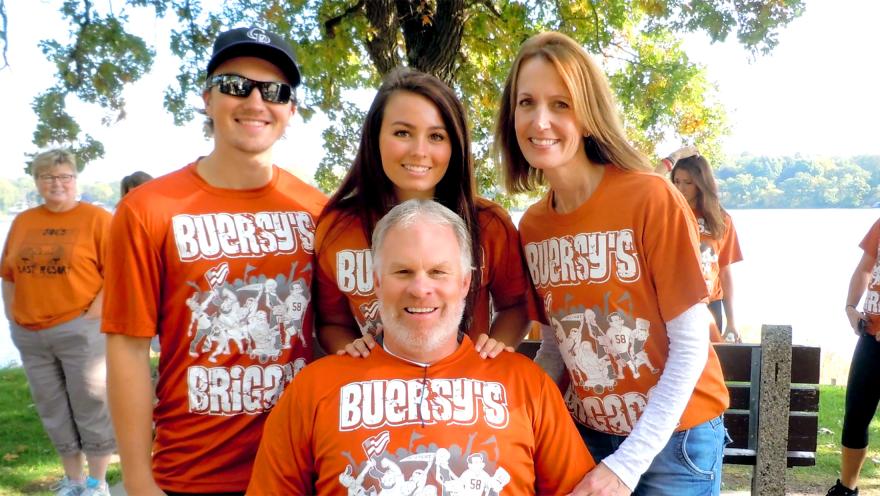When her husband Mark was diagnosed with ALS in 2008, Linda Buermann took on a new role that she never anticipated: caregiver.
“It changes everything in your world,” she says of an ALS diagnosis. “You go from a wife to a wife and caregiver, and the roles are different. They're challenging. You become a person you don't necessarily want to become. It changes you. You do find a way to get through it”
Like many family caregivers, Linda juggles caregiving and her career. According to the National Alliance for Caregiving, 61 percent of family caregivers continue to work.
“It's like doing double duty every day,” she said. “Mentally you go to work, but in the back of my mind, I'm thinking about: What do I do differently tonight to keep our life moving along? What do I do differently for the kids to keep everything kind of manageable?”
While caregivers say that the role provides a sense of meaning, it also creates stress and negative health outcomes for the caregiver. For Linda and Mark Buermann, a health scare for Linda gave them a new perspective on family caregiving.
Just over a year ago, Linda had heart surgery. The tables turned, turning Mark into Linda’s caregiver.
“It was a role reversal,” she said. “He did exactly for me what I've been doing for him. He cared. He took care of me. He did everything I needed done. So it taught me a little bit more about what's on that side. How you have to have that person you can depend on. How you have to let others help, because you can't. And it helped me see a little bit maybe of what he goes through, when you have to reach out when you don't want it because you're stronger than that. You don't want to have to have that help. So you learn a lot on both sides of the spectrum,” she said, calling Mark her hero.
According to NAC, caregivers say that respite care is important, but only 14 percent of caregivers say they have used respite services.
“It's out there,” Lind said. “I just have to reach for it. I don't always tell myself I have the time for it, because I'd rather put that extra time into family or something at home. But there's support available. I don't like to burden a lot of people. I don't like to just talk about my story. I want to be somewhat normal and I don't want to weigh family down. So I try to carry a lot of it just between us.”
As ALS progresses, Linda said, it is important to periodically take stock of where they are in the progression.
Someday we'll go down a level, I'm certain, as the disease progresses – even though there's lots of hope for slowing it down. And I'm sure I'll get back into that black hole where you have to dig yourself out, say ‘this is the new normal,’ grab help from The ALS Association and anybody else that wants to give it to you to rebuild, and then accept it and then keep moving forward,” she said.


Join the conversation. Please comment below.